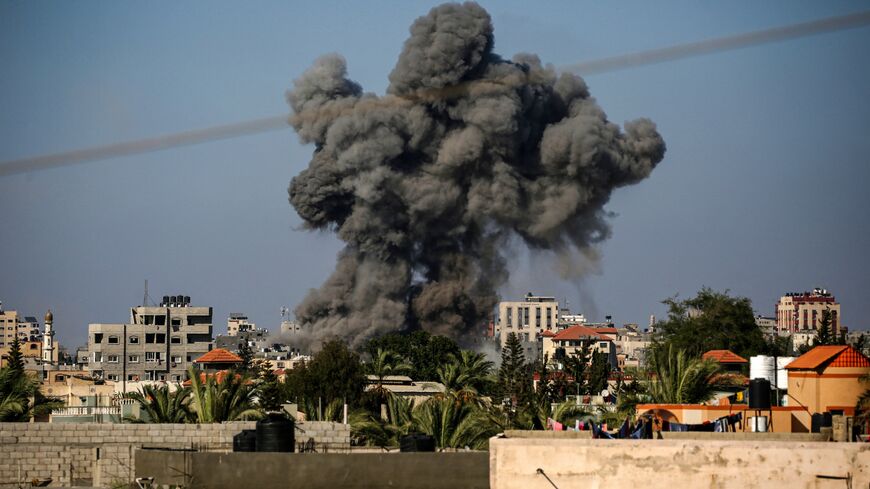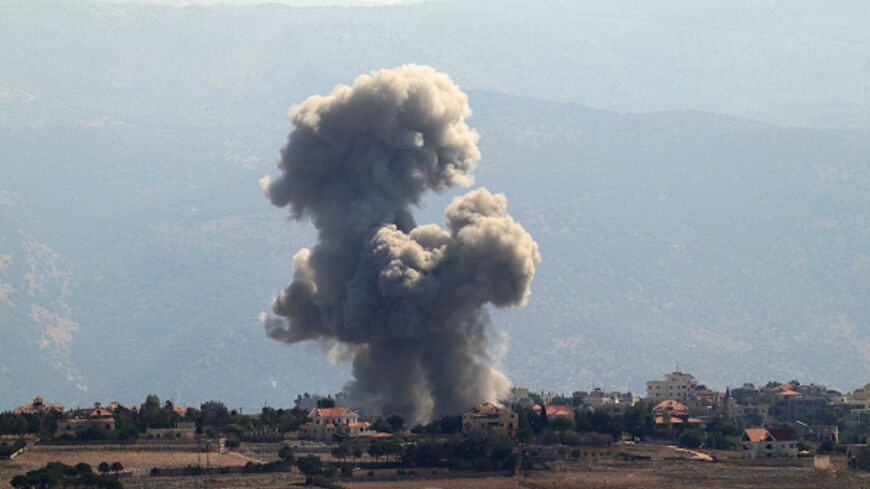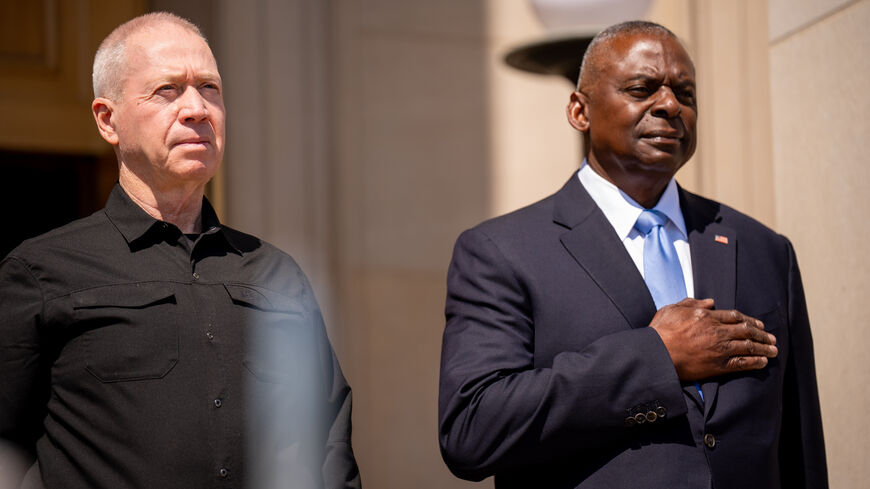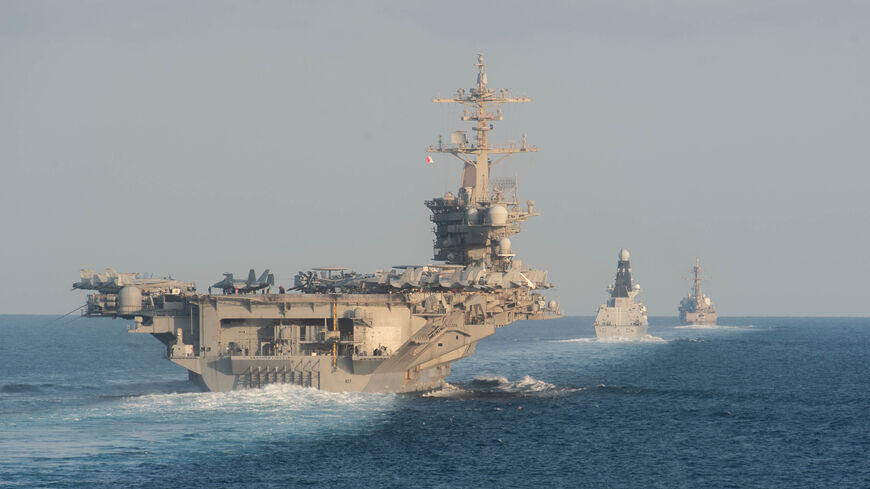Pentagon shared intel with Israel to thwart Hezbollah attack
Israel's air force and navy overwhelmingly thwarted the attack without need for the US military to shoot down any of Hezbollah's projectiles, Pentagon officials said.
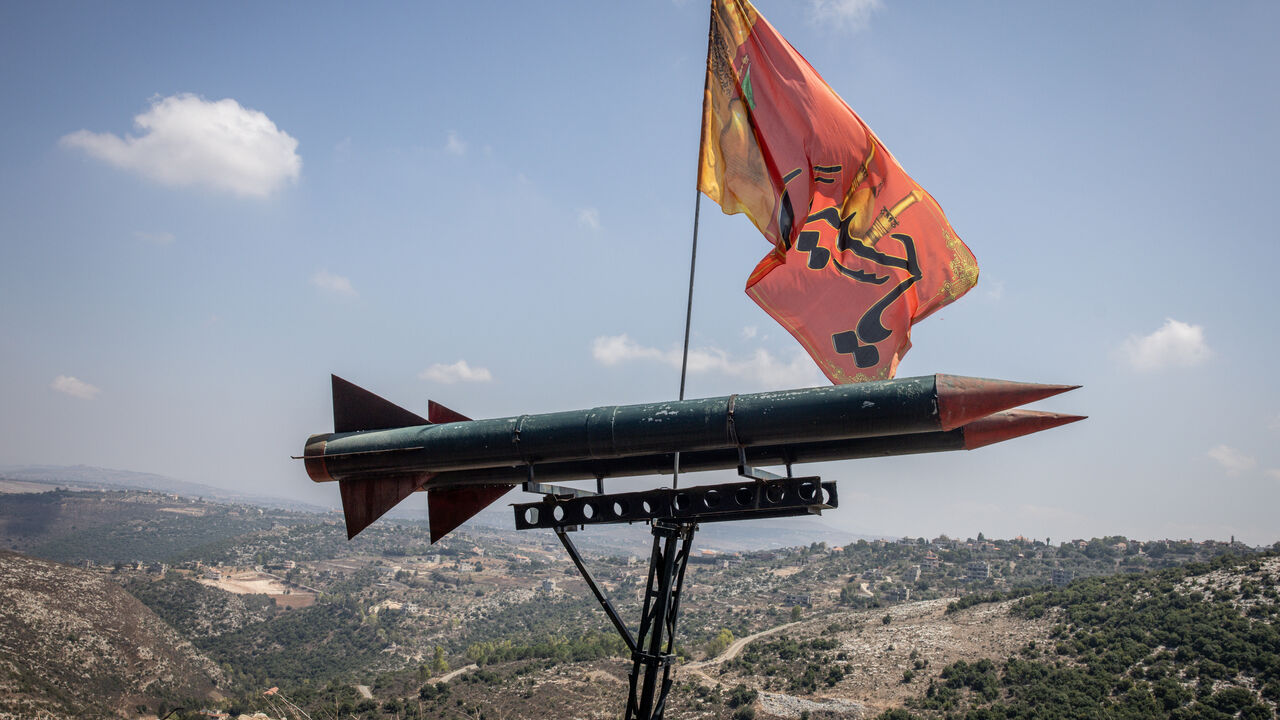
WASHINGTON — The Pentagon believes Iran and its proxy militias across the Middle East remain poised to retaliate against Israel, after Hezbollah and Israel exchanged their largest mutual cross-border attacks so far since the beginning of the Oct. 7 war.
The US military closely monitored Hezbollah’s preparations for an attack in the hours leading up to preemptive Israeli airstrikes across southern Lebanon on Saturday evening, US officials confirmed on Monday.
But the US did not assist Israel's military with targeting, nor did it play any role in Israeli leaders’ decision to launch the wave of strikes, the Pentagon’s top spokesperson, US Air Force Maj. Gen. Patrick Ryder, told reporters.
“We did provide some intelligence, surveillance and reconnaissance support in terms of tracking incoming Lebanese Hezbollah attacks, but did not conduct any kinetic operations as they were not required,” Ryder said during a briefing the Pentagon.
“We remain well-postured to support Israel’s defense against any aggression from Iran, Lebanese Hezbollah or other actors,” he added.
What happened: Israeli military officials said more than 100 of their fighter aircraft launched airstrikes on "thousands" of rocket and missile systems across some 40 sites in southern Lebanon before dawn on Sunday. Israeli officials described the strikes as a preemptive move to thwart an imminent Hezbollah attack on various locations in northern Israel.
Hezbollah’s leader, Hassan Nasrallah, denied any massive attack had been in the works, slamming the Israeli strikes as an “aggression” that he claimed had not damaged the militia’s formidable arsenal.
The Iran-backed group launched roughly 320 Katyusha unguided rockets and at least 20 drones toward Israeli military facilities in response early on Sunday, Israeli military officials confirmed.
Nasrallah further described his side’s response — which came as retaliation for Israel’s assassination of top Hezbollah commander Fuad Shukr in Beirut last month — as “successful,” but added that Hezbollah would consider additional attacks into Israel “if the results were not enough” to deter future Israeli strikes.
Some 90% of Hezbollah’s counter-barrage was thwarted by the Israeli air force and navy, Al-Monitor reported on Monday, with no casualties reported. Other munitions fired in that barrage fell short or missed their targets, Israeli military spokesperson Rear Adm. Daniel Hagari said.
How it unfolded: Top US military officials remained in close contact with their Israeli counterparts both before and after the flare-up with Hezbollah.
US Defense Secretary Lloyd Austin spoke by phone with his Israeli counterpart, Yoav Gallant, on Saturday night and Sunday morning, Washington time, and assured him that the two US carrier strike groups in the region — the USS Abraham Lincoln and the USS Theodore Roosevelt — would remain in the region under his orders.
Israeli officials launched the strikes in Lebanon around 5:00 a.m. after coordinating with US officials.
The US, however, did not take an active role in Israel’s preemptive strikes, nor did US assets participate in the midair shoot-downs, as they did during Iran’s mid-April barrage against Israel, Pentagon officials said.
“There was no requirement for the US to employ any of our munitions or capabilities to help defend,” Ryder told reporters on Monday. “In other words, Israel was able to do that with its own organic capabilities and systems.”
Ryder declined to say whether the US had shared intelligence on the positions of Hezbollah launchers prior to the attack, saying only that the US provided intel to help Israeli military "understand the incoming [fire] as it related to Lebanese Hezbollah."
“We’re in constant touch with our Israeli counterparts, and we were throughout the weekend. That muscle and sinew was in place,” White House National Security Council spokesperson John Kirby told reporters later on Monday.
What’s next: US officials believe the threats by Iran and its proxies to retaliate against Israel for the twin assassinations of Shukr in Beirut and Hamas political chief Ismail Haniyeh in Tehran earlier this month remain active.
While the containment of the mutual Hezbollah-Israel strikes reduced anxieties across the region of an imminent escalation towards war, Kirby said Hezbollah's barrage was just the sort of attack which the White House began warning earlier this month could be launched at any time. Officials on Monday cautioned similar attacks by Iran and its proxies remain on the table.
“We have to assume Iran remains postured and prepared, should that be a decision that they make,” Kirby said.
Hezbollah's fusillade into Israel was carried out largely with unguided munitions, potentially signaling intent to seize the off-ramp and avoid further escalation while living up to its promise to attack.
Israel and Hezbollah exchanged messages following the mutual strikes that neither side seeks further escalation, Reuters cited two diplomatic sources as saying.
Washington’s top-ranking general, Chairman of the Joint Chiefs of Staff Gen. CQ Brown, is touring the region on a rare visit to follow up on efforts by CENTCOM commander Gen. Michael "Erik" Kurilla to coordinate regional defenses. The chairman, who is also Biden’s top military adviser, has met so far with defense leaders in Cairo, Amman and Israel before heading to Beirut on his surprise trip, which was kept under tight wraps in the days leading up to Hezbollah’s attack.
In the aftermath of the cross-border attacks on Monday, Brown met in Tel Aviv with Gallant, the Israeli military's new intelligence director, Maj. Gen. Shlomi Binder, as well as the commanders of the Israeli Navy and Air Force. Brown also received operational updates from senior Israeli military leaders and traveled with IDF Chief of Staff Lt. Gen. Herzi Halevi to Israel's Northern Command on Monday, the Pentagon said.
“We continue to maintain very frequent and close communication with our Israeli counterparts to understand the nature of the threat to be able to better support any defense should that be required,” Ryder said on Monday.



